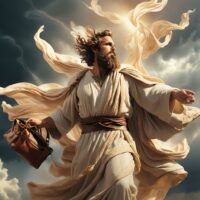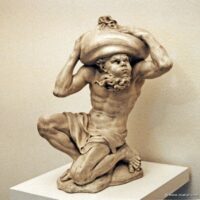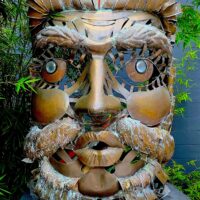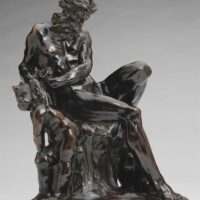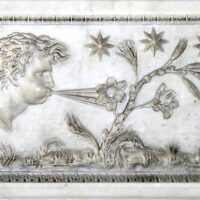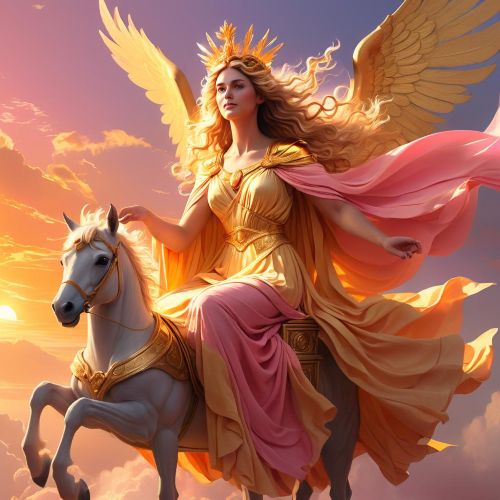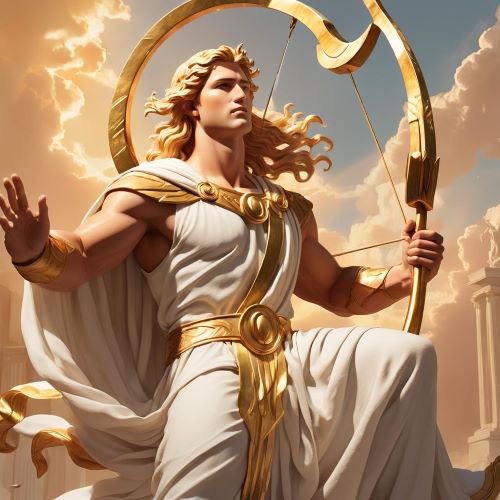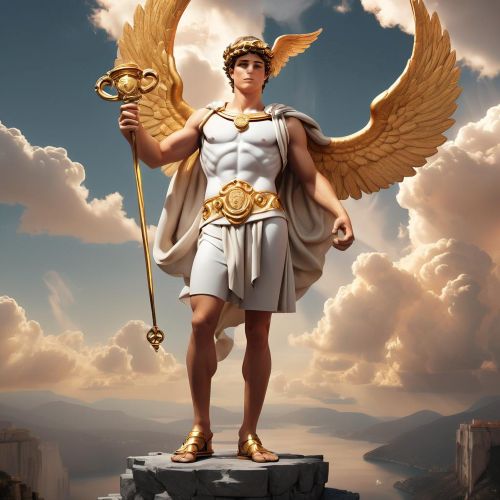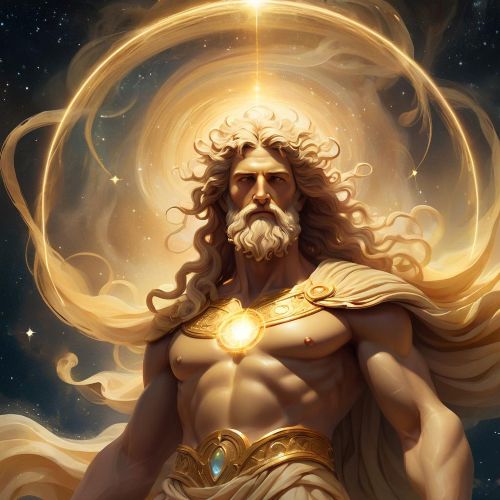Aeolos : God of Winds
Listen
At a glance
| Description | |
|---|---|
| Origin | Greek Mythology |
| Classification | Gods |
| Family Members | Hellen (Father), Orseis (Mother), Enarete (Wife) |
| Region | Greece |
| Associated With | Winds |
Aeolus
Introduction
Aeolos, or Aiolos in Greek, holds a unique role in mythology as the “Keeper of the Winds.” He is best known for his command over these powerful forces of nature, a role that plays a crucial part in stories like Homer’s Odyssey. His tale explores themes of control, balance, and humanity’s relationship with the elements. Over time, his influence has extended beyond mythology into language, literature, and science, securing his place in cultural memory.
Classical texts provide little detail about Aeolos’s appearance, leaving room for artistic interpretation. Modern portrayals often imagine him as an older man, around sixty, dressed in sky-themed attire—sometimes depicted in a flowing robe or even a business suit adorned with swirling clouds, emphasizing his dominion over the winds.
Physical Traits
Ancient texts offer little detail about Aeolus’s appearance, leaving room for artistic and modern interpretations. He is often imagined as a dignified figure with features that reflect his dominion over the winds. In some depictions, he takes on the appearance of an elder statesman, exuding wisdom and authority, sometimes dressed in flowing robes that evoke the movement of air. Others reimagine him in contemporary settings, clad in attire adorned with swirling clouds or capable of summoning storms with a mere gesture.
Visual representations frequently place him amid gusting winds or surrounded by small, winged figures symbolizing the breezes he controls. Whether depicted with a commanding beard or an ethereal presence, Aeolus consistently embodies his role as the master of the ever-shifting skies.
Family
Aeolus’s genealogy varies across different mythological traditions. One prominent account names him as the son of Hellen and the nymph Orseis, making him a brother to Dorus and Xuthus. As Hellen is regarded as the progenitor of the Greek people, this places Aeolus at the heart of Hellenic ancestry. He married Enarete, daughter of Deimachus, and fathered several notable children, including Cretheus, Sisyphus, Athamas, Salmoneus, Deion, Magnes, and Perieres among his sons, and Canace, Alcyone, Pisidice, Calyce, and Perimede among his daughters. Many of his descendants went on to establish royal lineages and appear in various legendary tales.
In other versions of the myth, Aeolus is portrayed differently. One tradition describes him as a mortal ruler of the Aeolian Islands, tracing his lineage to Hippotes, a descendant of Hellen, reinforcing his noble origins. Another interpretation elevates him to a divine status as the son of Poseidon and a nymph, underscoring his celestial role as a master of the winds. Regardless of the version, Aeolus’s connections to both mortals and deities highlight his significance in mythology, bridging human and elemental forces.
Other names
Aeolus was known by multiple epithets, each highlighting a different aspect of his nature and dominion. One of the most well-known titles, Hippotades, stems from the Greek hippos (horse) and taden (restrained), symbolizing his control over the winds, which were often likened to galloping horses. This metaphor underscores the ancient belief in the winds’ untamed power, which Aeolus alone could command.
His name itself carries significant meaning. Aiolos in Greek conveys a sense of movement and brilliance, often used to describe shifting lights or the glittering night sky, further linking him to celestial forces. The Latinized Aeolus became the standard name in Roman adaptations and later literature. Additionally, he was commonly referred to as the Keeper of the Winds, a title emphasizing his cosmic duty. These various names reflect the rich symbolism surrounding Aeolus and his lasting influence across different mythological traditions.
Powers and Abilities
Aeolus wielded extraordinary control over the winds, a power bestowed upon him by Zeus. His primary role was to regulate these forces, either unleashing them to shape the weather or confining them within his island of Aeolia. This ability made him a key figure for sailors, as his favor could mean smooth sailing, while his wrath could summon storms.
One of the most famous depictions of his power appears in The Odyssey, where he provides Odysseus with a sealed bag containing unruly winds, ensuring a safe journey. However, when Odysseus’s crew unwittingly opens it, the released tempests drive them off course, illustrating both the potency of Aeolus’s gift and the perils of misusing it. Beyond mere wind manipulation, he also possessed deep wisdom about nature’s forces, allowing him to act as a guide for mortals. His dominion over the elements positioned him as both a benefactor and a force to be reckoned with, embodying the dual nature of the winds—gentle breezes or raging storms.
Modern Day Influence
Aeolus’s legacy endures in modern literature, art, and culture, often symbolizing the raw power and unpredictability of nature. In Ulysses, James Joyce cleverly uses the “Aeolus” episode to depict the chaotic nature of rhetoric in a newspaper office, where words, much like the winds, can be forceful yet fleeting. Here, Aeolus becomes a metaphor for speech—capable of either guiding or derailing progress, just as his winds shaped the fates of sailors.
Beyond literature, Aeolus continues to appear across various media, from music to video games, reinforcing his image as the master of the winds. The term “Aeolian,” derived from his name, is widely used in geology to describe wind-driven processes such as erosion and dune formation. His name has even been immortalized in astronomy, with celestial features bearing his title, underscoring his connection to the forces of nature. More broadly, Aeolus serves as a cultural symbol of humanity’s intricate relationship with the elements—representing both the necessity of balance and the ever-present potential for disruption. His enduring presence in modern storytelling highlights the timeless nature of Greek mythology and its relevance to contemporary narratives.
Related Images
Source
Apollodorus. The Library of Greek Mythology. Translated by Robin Hard, Oxford University Press, 1999.
Homer. The Odyssey. Translated by Robert Fagles, Penguin Classics, 1996.
Virgil. The Aeneid. Translated by Robert Fitzgerald, Vintage Classics, 1983.
Burkert, Walter. Greek Religion: Archaic and Classical. Harvard University Press, 1985.
Graves, Robert. The Greek Myths. Penguin Books, 2011.
Powell, Barry B. Classical Myth. Pearson Education, 2012.
Theoi Project:
Encyclopedia Mythica:
Ancient.eu:


